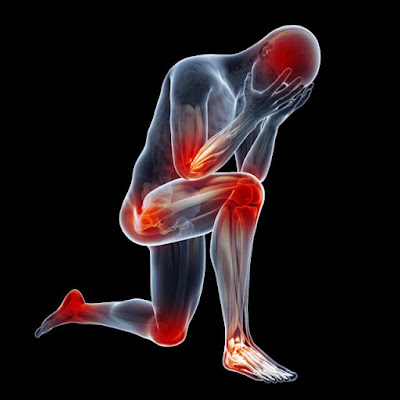Knee and joint pain is a common complaint among adults and most often associated with general wear and tear from daily activities like walking, bending, standing and lifting. Athletes who run or play sports that include jumping or quick pivoting are also more likely to experience knee pain and problems. Knee joint pain is a common companion that affects people of all ages and lifestyles. From athletes pushing their physical limits to individuals leading a sedentary lifestyle, knee pain can be a pervasive issue. In this write-up, we will delve into the various causes and problems associated with knee and joint pain, shedding light on the factors that contribute to this discomfort.
Causes of Knee & Joint Pain
Osteoarthritis: One of the leading causes of knee pain is osteoarthritis, a degenerative joint disease that occurs when the protective cartilage that cushions the ends of your bones wears down over time. This can result in pain, swelling, and difficulty in movement.
Rheumatoid Arthritis: An autoimmune disorder, rheumatoid arthritis targets the
synovium—the lining of the membranes surrounding your joints. Inflammation
caused by this condition can lead to knee joint pain and long-term joint
damage.
· Injuries and Trauma: Sports injuries, accidents, or sudden trauma can damage the
knee joint, causing pain and limiting mobility. Common injuries include
ligament tears (like the ACL or MCL), meniscus tears, and fractures.
· Overuse and Strain: Excessive or repetitive stress on the knee joint, often seen in
activities like running or kneeling for extended periods, can lead to overuse
injuries. Tendinitis, bursitis, and patellar syndromes are common in
individuals with this type of knee pain.
· Obesity: Carrying excess body weight places additional stress on the knee joints. This added pressure can contribute to the development or exacerbation of knee and joint pain, especially in weight-bearing activities.
Problems Associated with Knee Joint Pain:
How can you get to know that you have to see a
doctor to get your joint pain treatment? Here we have discussed some
problems that come along with chronic joint pain.
The Final Verdict
Understanding the causes
and problems associated with knee and joint pain is crucial for
effective management and prevention. Whether stemming from arthritis, injuries,
or overuse, seeking timely medical attention and adopting preventive measures
can go a long way in preserving the health and functionality of the knee
joints. Embracing a holistic approach, including appropriate exercises, weight
management, and lifestyle adjustments, can contribute to a life free from the
shackles of knee and joint pain.

Comments
Post a Comment